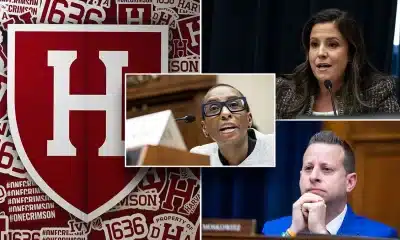Politics
Kevin McCarthy Suffers 11th Ballot Defeat for Speaker of the House
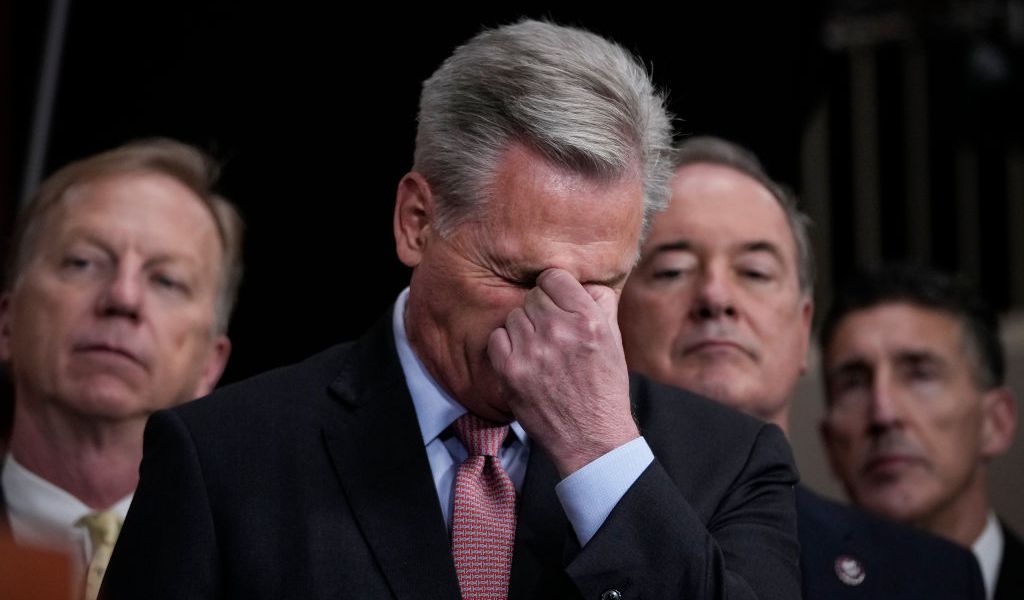
The race for the next Speaker of the United States House of Representatives will continue for a fourth day after lawmakers voted to adjourn proceedings on Thursday evening following a historic 11th ballot loss for Republican Kevin McCarthy amid a tense impasse in Washington.
Despite McCarthy’s last-ditch efforts to subdue opposition and secure the votes he needs to be elected House Speaker, 20 Republicans repeatedly voted against him, denying him the simple majority he needed to win the gavel.
The protracted stalemate revealed long-simmering tensions within the Republican party and prompted speculation about how lawmakers might chart a way forward. McCarthy has resisted calls for him to step down in favor of another Republican, and Democrats have declined suggestions that they might support McCarthy or collaborate with Republicans to select a new Speaker.
Late Thursday night, a slim majority of lawmakers agreed to adjourn, setting the stage for a new round of voting on Friday at noon. The House began voting on Tuesday, but no consensus has been reached.
The House of Representatives is required by the Constitution to select a Speaker before it can move on to legislative business.
Kevin McCarthy Needs 218 Votes
McCarthy made history by becoming the first candidate for Speaker in a century to require multiple rounds of voting. In 1923, there were nine voting rounds. Some of the rebels have personal grievances with McCarthy, while others have demanded rule changes that would facilitate McCarthy’s ouster.
After months of negotiations, it appeared on Thursday that McCarthy had agreed to change the rules so that only one member of the House could request a vote of no confidence. However, the changes did little to move the dial and bring him closer to the 218 votes needed for a simple majority in the chamber.
The Republicans regained control of the House of Representatives in the midterm elections of November. McCarthy is in a difficult position because the “red wave” he predicted did not materialize and Republicans hold a razor-thin majority in the chamber, leaving him dependent on a small number of rebels.
The Club for Growth, an ultra-low-tax organization, and the Congressional Leadership Fund, a McCarthy-aligned fundraising organization, announced late Wednesday that they had reached an agreement whereby the latter would not spend money on open Republican primaries in safe seats.
Trump VOTE FOR KEVIN
The agreement was viewed as a victory for conservative Republicans who had previously objected to McCarthy’s efforts to support more centrist candidates. McCarthy received an apparent boost earlier on Wednesday when former US president Donald Trump issued a ringing endorsement of his candidacy, declaring:
“It’s now time for all our GREAT Republican House members to VOTE FOR KEVIN, CLOSE THE DEAL, TAKE THE VICTORY!”
Trump’s efforts failed to sway the dissenters, which is the latest indication that his influence within the party is waning. One of the Republican rebels, Lauren Boebert, referred to Trump as her “favorite president” but said he should be urging McCarthy to withdraw.
Some of McCarthy’s allies have also urged the California congressman to step down in favor of a consensus candidate who could unite the party’s warring factions. Steve Scalise, a congressman from Louisiana and McCarthy’s deputy, has been proposed as an alternative by a number of members, both publicly and privately.
Despite suggestions that Democrats and a group of Republicans could band together to support an alternative Speaker candidate, Democratic leaders have shown little willingness to help break the impasse. Instead, Democrats voted unanimously in favor of Hakeem Jeffries, who took over as party leader in the House after Nancy Pelosi announced her intention to step down.
Source: FT, VOR News
Politics
As Putin Begins Another 6-Year Term, He Is Entering A New Era Of Extraordinary Power In Russia
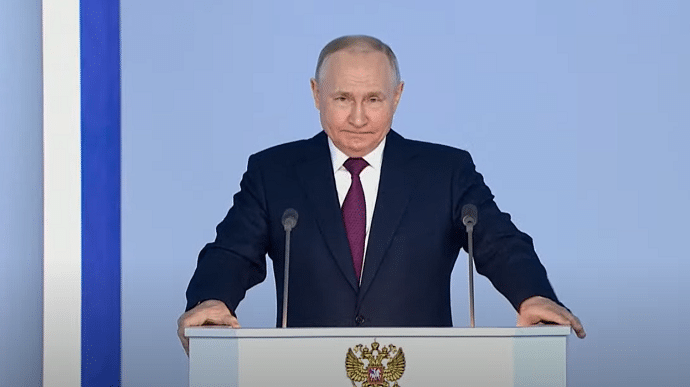
Just a few months shy of a quarter-century as Russia’s leader, Vladimir Putin, will sign a copy of the constitution on Tuesday, ushering in another six-year term as president with unparalleled powers.
Since becoming acting president on December 31, 1999, Putin has shaped Russia into a monolith, crushing political opposition, expelling independent journalists, and promoting an increasing adherence to prudish “traditional values” that push many in society to the margins.
His authority is so strong that other leaders could only stand on the sidelines while Putin began a war in Ukraine, despite predictions that the invasion would bring worldwide condemnation and harsh economic penalties, as well as cost Russia dearly in the blood of its men.
AP – VOR News Image
As Putin Begins Another 6-Year Term, He Is Entering A New Era Of Extraordinary Power In Russia
The war in Ukraine, in which Russia is making gradual but continuous battlefield advances, is the primary issue, and he shows no signs of reversing direction.
“The war in Ukraine is crucial to his current political ambition, and I see no reason to believe that will change. “And that affects everything else,” Brian Taylor, a Syracuse University professor and author of “The Code of Putinism,” told The Associated Press.
“It affects who’s in what positions, it affects what resources are available and it affects the economy, affects the level of repression internally,” he said.
In his February State of the Union address, Putin vowed to carry out Moscow’s objectives in Ukraine and do everything necessary to “defend our sovereignty and the security of our citizens.” He stated that the Russian military has “gained a huge combat experience” and is “firmly holding the initiative and waging offensives in several sectors.”
That will come at a high cost, potentially depleting funds for the massive domestic projects and changes in education, welfare, and poverty alleviation that Putin detailed in his two-hour presentation.
Taylor believed such initiatives were included in the address primarily for show rather than to indicate a genuine commitment to implement them.
Putin “thinks of himself in the broad historical terms of Russian territory, putting Ukraine back to where it belongs, and things like that. And I believe them outweigh any more socioeconomic-type programs,” Taylor added.
Suppose the battle does not result in absolute loss for either side, with Russia maintaining some of the territory it has already conquered. In that case, European governments fear Putin will be tempted to engage in additional military adventurism in the Baltics or Poland.
AP – VOR News Image
As Putin Begins Another 6-Year Term, He Is Entering A New Era Of Extraordinary Power In Russia
“It’s possible that Putin does have vast ambitions and will try to follow up on a costly success in Ukraine with a new attack somewhere else,” Harvard international relations expert Stephen Walt wrote in Foreign Policy. “But it is also entirely possible that his ambitions do not extend beyond what Russia has won — at enormous cost and that he has no need or desire to gamble for more.”
However, he said, “Russia will be in no shape to launch new wars of aggression when the war in Ukraine is finally over.”
Others argue that such a sensible worry may not prevail. According to Maksim Samorukov of the Carnegie Russia Eurasia Center, “Moscow is likely to make self-defeating mistakes driven by Putin’s whims and delusions.”
In a Foreign Affairs column, Samorukov stated that Putin’s age may influence his judgment.
“At 71, his awareness of his death undoubtedly influences his decision-making. A rising awareness of his short time influenced his catastrophic choice to attack Ukraine.
Overall, Putin may be entering his new term with less influence than he appears to have.
Russia’s “vulnerabilities are concealed in plain sight. “Now more than ever, the Kremlin makes decisions in a personalized and arbitrary manner, with no basic controls,” Samorukov stated.
“The Russian political elite have grown more pliant in implementing Putin’s orders and more obsequious about his paranoid worldview,” he stated in the letter. The country’s leadership “is at permanent risk of crumbling overnight, as its Soviet predecessor did three decades ago.”
Putin is certain to maintain his hostility against the West, which, he stated in his State of the Nation speech, “would like to do to Russia the same thing they did in many other regions of the world, including Ukraine: to bring discord into our home, to weaken it from within.”
Russia banned the fictitious LGBTQ+ “movement” last year, labeling it extreme in what officials claimed was a fight for traditional values such as those promoted by the Russian Orthodox Church against Western influence. Courts also prohibited gender transformation.
“I would expect the role of the Russian Orthodox Church to continue to be quite visible,” Taylor said. He also mentioned the social media anger that erupted during a party held by TV presenter Anastasia Ivleeva, in which guests were urged to arrive “almost naked.”
AP – VOR News Image
As Putin Begins Another 6-Year Term, He Is Entering A New Era Of Extraordinary Power In Russia
“Other actors in the system understand that that stuff resonates with Putin. … There were people interested in exploiting things like that,” he went on to say.
Although the opposition and independent media have nearly evaporated as a result of Putin’s repressive actions, there is still room for future movements to dominate Russia’s information space, such as continuing efforts to construct a “sovereign internet.”
The inauguration takes place two days before Victory Day, Russia’s most important secular festival honoring the Soviet Red Army’s seizure of Berlin in World War II and the war’s terrible difficulties, which cost the USSR around 20 million people.
The defeat of Nazi Germany is important to modern Russia’s character, as is Putin’s justification of the war in Ukraine as an analogous conflict.
SOURCE – (AP)
Politics
Canada’s Liberal Party Facing Political Oblivion Under Justin Trudeau
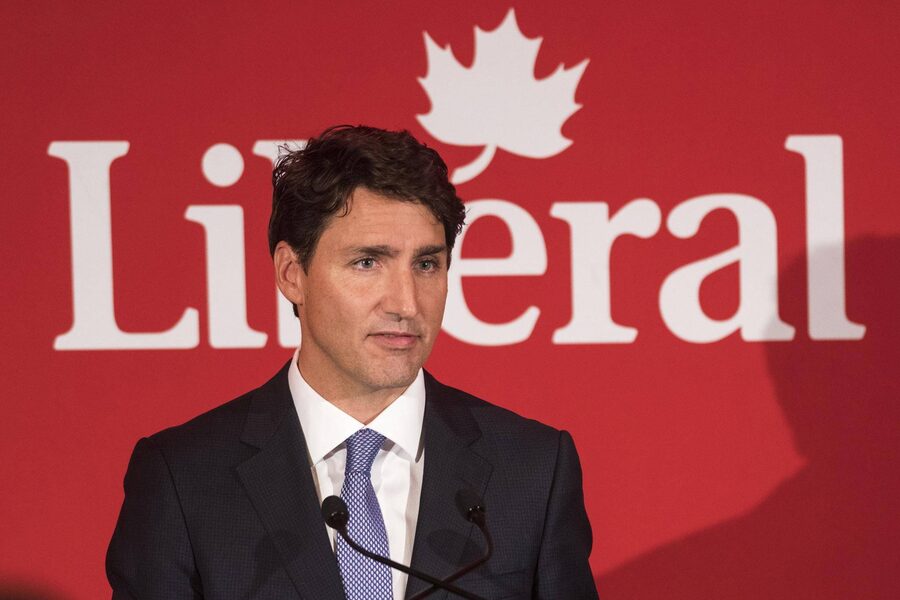
More than a decade ago, Justin Trudeau seized a demoralized, strife-torn, third-place Liberal Party and transformed it into his own image, winning election after election. There are few voices of criticism within the Liberal party because the voices that do matter are all important because of him.
However, according to the most recent surveys, the Liberals are on track for not only defeat, but destruction in the next federal election. Even the most ardent Trudeau supporters must be starting to ponder if it’s time for a change at the top.
The Conservatives established a significant lead over the Liberals last summer and have maintained it ever since. That lead may potentially be increasing. Abacus Data’s weekend survey for the Toronto Star shows the Tories leading the Grits by 19 percentage points in the popular vote, 43% to 24%, with the NDP at 18%.
The Liberals are in third position in both the Prairies and British Columbia. The Conservatives have more than 50% support in Atlantic Canada and lead the Liberals by 14 points in Ontario. But here is the genuinely astonishing number: According to Abacus, the two parties are statistically deadlocked in Quebec, a historically liberal bastion, with the Bloc Québécois at 34%, the Conservatives at 26%, and the Liberals at 25%.
(The online survey of 2,398 adults was conducted from February 1 to 7, with a margin of error of plus or minus two percentage points, 19 times out of 20.)
Provincial sample sizes are modest, with a wider margin of error than the national total. That’s why the Léger poll released last week is so significant. An online survey of 1,032 Quebec voters released earlier this month found the Bloc Québécois at 29%, the Liberals at 28%, and the Conservatives at 24%.
Two surveys show the Conservatives competing with the Liberals in Quebec. What does this mean?
It implies that if an election were conducted tomorrow, the Liberals would lose the majority of their 24 seats in Atlantic Canada and at least some of their 34 seats in Quebec.
The Conservatives would significantly reduce Liberal strongholds in suburban Ontario and British Columbia, while the NDP may win seats from them in the downtowns. The prairies would remain a liberal desert.
Some Liberals feel Mr. Trudeau is the ideal leader to save the furniture, as the saying goes, and that even if he loses the next election, the Prime Minister will protect the Liberal base for a successor to build on. Those who believe that should reconsider.
The Liberals under Mr. Trudeau risk a historic defeat that could approach the disasters of 1958, 1984, or 2011. According to polling expert Philippe Fournier of 338Canada.com, the argument that there is still time to turn things around appears to be “naive wishful thinking.”
“The Conservatives already have their winning coalition of voters,” he wrote on Sunday. Barring anything terrible, that vote is now final.
So, is it time for Trudeau to step down? Voters seem to believe so.
Data Dive with Nik Nanos: The national mood is dour—good news for the Conservatives
According to Nik Nanos’ poll for The Globe and Mail, 46 percent of Canadians believe Mr. Trudeau has done a poor job as Liberal Leader, while 25% think he has done an exceptional job. When asked how the Liberals could improve their prospects of winning the next election, 39% said they should replace Mr. Trudeau. Only 3% thought the party’s best option was for him to remain.
(The hybrid phone and online poll of 1,114 adults took place between January 29 and 31, with a margin of error of plus or minus 2.9 percentage points 19 times out of 20.)
One of the most significant responsibilities of a political leader is to leave their party in good standing for their successor. Stephen Harper not only reunited the conservative movement and gave nearly ten years of rule, but he also left the Conservative Party with strong finances and 99 seats in the House following his 2015 election defeat.
He has a responsibility to leave a strong Liberal Party to the next leader. He must honestly examine himself whether being at the party’s helm is the best way to guarantee that outcome. Most voters appear to have come to their own judgments.
Source: The Globe and Mail
Canada’s Household Debt Nears $3 Trillion Under Trudeau
Politics
UK’s Sadiq Khan Wins a Third Term as London’s Mayor
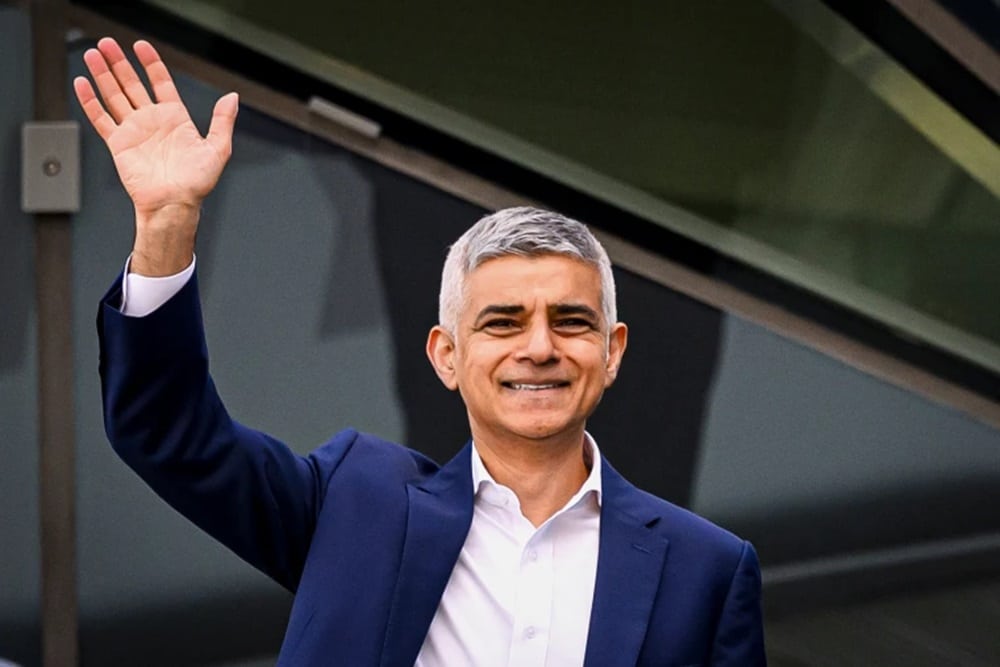
On Saturday, London’s Labour Party mayor Sadiq Khan won a record third term at City Hall, further embarrassing the Conservatives ahead of a general election. Khan won approximately 44% of the vote, more than 11 percentage points ahead of Conservative Party candidate Susan Hall.
He has the largest U.K. political mandate.
On Friday, there was wild speculation that the vote would be closer than expected, but Khan’s victory demonstrated a swing from Conservative to Labour compared to the 2021 mayoral election, which used a different electoral method.
Khan, who replaced Boris Johnson as London mayor in 2016 and has broad policing and financial powers, has become increasingly unpopular in recent years, especially in the suburbs, where he did worse than in the inner city.
His admirers believe he expanded house building, provided free school meals for young children, controlled transport prices, and supported London’s diverse groups. Critics believe he has caused a crime rise, is anti-car, and has unnecessarily allowed weekend pro-Palestinian marches.
Khan remarked during the final result announcement, “We faced a campaign of non-stop negativity, but I couldn’t be more proud that we answered the fearmongering with facts, hate with hope, and attempts to divide with efforts to unite.” Count Binface, a colorful British election candidate, stood behind him with a rubbish can on his head.
Sadiq Khan pushes diversity
Sadiq Khan said, “We ran a campaign that was in keeping with the spirit and values of this great city, a city that regards our diversity not as a weakness, but as an almighty strength, and one that rejects right hard-wing populism and looks forward, not back
Also re-elected Saturday were Liverpool, Greater Manchester, and West Yorkshire Labour mayors. Labour did best in the West Midlands, a major U.K. bellwether where the Conservative incumbent lost.
After taking over English councils for the first time in decades, Labour scored its latest achievements. The party also won a special election for a member in Parliament, which would be one of the Conservatives’ greatest losses ever.
The Conservatives lost the municipal elections, but Prime Minister Rishi Sunak appears to be safe from further dissent.
The Conservative mayor of Tees Valley in northeast England was reelected, albeit with a low vote share, easing Sunak’s concerns. In the West Midlands, Sunak hoped Andy Street would hold on, but Labour’s Richard Parker won by barely 2,000 votes.
Labour lost votes in Muslim parts of England due to the party leadership’s pro-Israel attitude during the Gaza war.
Upcoming UK Election
Keir Starmer acknowledged that the party has had challenges with Muslim voters, but the findings were generally encouraging for the frontrunner for prime minister in the upcoming general election.
Sunak can call the next election, which he says will be in the second part of 2024. Keir Starmer advised him to act now.
“We’re fed up with your division, chaos, and failure,” he stated Saturday. “If you leave your country in a worse state than when you found it, 14 years later, you do not deserve to be in government.”
Thursday’s elections in huge portions of England were vital because voters chose who would manage rubbish collection, road maintenance, and local crime prevention. However, a national election is focusing attention on them.
The results demonstrate that Sunak has not benefited the Conservative brand after Boris Johnson and Liz Truss damaged it, according to University of Strathclyde political scholar John Curtice.
“That in a sense is the big takeaway,” he told BBC radio.
Sunak became PM in October 2022 after Truss’s brief term. She resigned after 49 days after a budget of unfunded tax cuts shook financial markets and raised homeowner borrowing costs.
Following her predecessor Johnson’s expulsion for lying to Parliament about Downing Street coronavirus lockdown breaches, her chaotic and traumatic leadership aggravated the Conservatives’ problems.
By late afternoon Saturday, with most of the 2,661 local election seats tabulated, the Conservatives had lost half of their 1,000 seats, while Labour had gained 200 despite Gaza-related losses.
The Greens and centrist Liberal Democrats also gained. Reform U.K., which is aiming to defeat the Conservatives from the right, also did well in the special parliamentary election in Blackpool South, where it was less than 200 votes from second place.
Source: The Associated Press
-
Politics5 months ago
Unveiling the Power and Influence of The Conservative Treehouse
-
Sports5 months ago
Saints’ Aggressive Play-Calling Ends Up Coming Back To Hurt Them In Loss To Rams
-
Business5 months ago
Nike Says It Will Cut $2 Billion In Costs In A Major Warning For Consumers
-
News5 months ago
The Intersection of Adult Video Sites and Modern Liberalism
-
Tech5 months ago
What is Proprietary Technology: Understanding Definition, Examples, and Advantages
-
Politics5 months ago
Claudine Gay: Harvard President Won’t Lose Job Over Congress Row











































